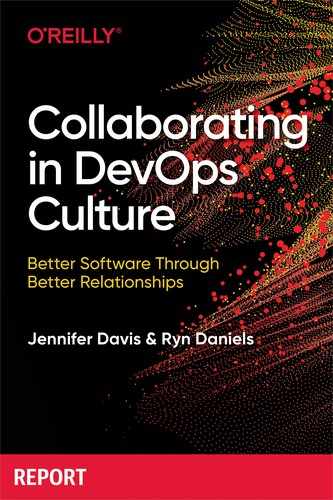Book Description
Enterprises are learning that a large measure of success for adopting devops is the spirit of collaboration it instills among teams. While companies introduce devops to solve technical issues and shorten the development life cycle, many soon realize that people working together is a key part of the process. This practical report provides managers with practices and strategies for fostering collaboration within their organizations.
Authors Jennifer Davis and Ryn Daniels (Effective DevOps) explain how collaboration among development and operations teams is about building trust, empathy, and psychological safety. You’ll learn how to promote these essential building blocks and help teams apply them through each stage of your development lifecycle. Discover how to empower employees, create more productive and innovative teams, and build a respectful workplace.
- Build durable, long-lasting relationships with colleagues by instilling trust, empathy, and team psychological safety
- Promote effective communication to increase understanding, assert influence, give recognition, and build community
- Strengthen engineering effectiveness by putting collaboration principles into practice throughout the development lifecycle
- Get actionable advice for promoting effective collaboration during your product’s discovery, development, and production phases
